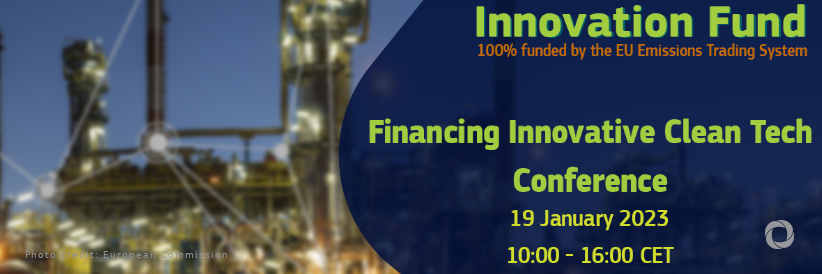2023 is off to a warm start, breaking records across Europe, children facing crisis hunger levels to rise by 14% in 2023 unless urgent action taken in Lebanon, and COVID-19: China infection surge on agenda at WHO coronavirus meeting. Here is what you missed from last week’s headlines in the international development sector.
2023 is off to a warm start, breaking records across Europe
A high-pressure zone over the Mediterranean region and an Atlantic low-pressure system induced a strong south-west flux that brought warm air from north-western Africa to middle latitudes. The air was further warmed when passing the North Atlantic due to a higher-than-normal sea surface temperature. In the eastern North Atlantic, sea surface temperature was 1–2 °C higher than normal, near the coasts of Iberia even more. All this caused record-breaking heat in several European countries on New Year’s Eve and New Year’s Day.
Temperatures above 20 °C were observed in many European countries, even in Central Europe. Some national and many local temperature records for December and January were broken in several countries from Spain to eastern parts of Europe.
Children facing crisis hunger levels to rise by 14% in 2023 unless urgent action taken in Lebanon
The number of children in Lebanon facing crisis levels of hunger is projected to increase by 14% early this year unless urgent action is taken, Save the Children warned.
Four in 10 Lebanese and Syrian refugee children in the country currently face high acute food insecurity – Phase 3 and above in the IPC acute food security classification system – due to a food crisis caused by years of economic instability and fuelled by global climate and hunger shocks.
Already, figures from the first IPC (September-December 2022) acute food insecurity analysis conducted in Lebanon showed that 37% of the Lebanese and Syrian population in Lebanon are living with high acute food insecurity, with over 306,000 people facing severe lack of food access which could lead to starvation. This figure is expected to increase from 37% to 42% – including 354,000 in IPC Phase 4 – for the first quarter of 2023 if urgent action is not taken.
COVID-19: China infection surge on agenda at WHO coronavirus meeting
As COVID-19 infections surge in China, coronavirus experts gathered at the UN health agency on January 3, to discuss next steps.
In Geneva, a spokesperson for the WHO confirmed during a scheduled press briefing that Chinese scientists had been invited to participate in a meeting of the Technical Advisory Group on COVID-19 (TAG).
The 30-strong expert group was formed in June 2020 to advise the UN health agency and Member States on coronavirus mutations and variants. The group’s last meeting was in October.
In an earlier statement, WHO said that Chinese scientists had been invited to present detailed data on viral sequencing to the expert meeting at WHO headquarters in Geneva.
DevelopmentAid Editorials
Will donors’ aid disbursements to Ukraine increase or drop in 2023? | Experts’ Opinions

It is less than a year since Russia invaded Ukraine in February 2022 but the ongoing war has resulted in over 7.7 million refugees. The response from the international community has been remarkable with the delivery of humanitarian and financial assistance and beyond. However, the donor funds diverted from aid projects to help Ukraine may put other developing countries in jeopardy. Will international aid distribution be different in 2023? Let’s see what some experts have to say in this regard.
Child marriage in Africa: facts and statistics

Despite the progress made to ensure human rights in the poorest African countries, millions of girls from the continent still face the issue of child marriage. Ignited by poverty, but also by traditions and cultural behavior, this phenomenon is sometimes believed to be the only way to escape poverty and hunger. But is that really so?
Due to a lack of education and healthcare, girls are unable to learn new skills and grow as individuals and thus become extremely vulnerable.
Today, there are approximately 130 million women and girls in Africa who were married before turning 18.
While some African nations have managed to demonstrate positive results in lowering the number of child marriages, there remain nations where the issue is still widely practiced.
Top most and least resilient countries in 2022

Norway is the most resilient country in the world while Yemen and South Sudan lead the list of the least resilient countries according to the first issue of the State Resilience Index which was recently published by The Fund for Peace. The report also finds a strong correlation between providing better conditions for women and resilience in terms of a country’s performance.
While for the last 18 years, the Fund for Peace (FFP) has been gathering and studying data to produce the State Fragility Index, this year the organization decided to produce a complementary publication – the State Resilience Index. According to FFP, the measure of resilience refers to the ability of countries to forestall, recover, and handle crises, taking into account the severity of these.
Here’s what else has happened
UNHCR: UNHCR, the UN Refugee Agency, Thursday welcomed a US $5.65 million contribution from the Korea International Cooperation Agency (KOICA). This new funding will help strengthen UNHCR’s response to address the health, access to potable water and education needs of refugees and host communities in Pakistan over a four-year period.
NDF: NDF announces its contribution of EUR 8.5 million to the Ocean Resilience and Coastal Adaptation Trust Fund (ORCA) that is managed by the Asian Development Bank. The Fund will be managed by the Asian Development Bank, NDF’s long-standing partner. NDF is happy to contribute a total of EUR 8.5 million to the Fund, alongside other partners, such as the United Kingdom and the Global Environment Facility.
Vietnam: Proparco has just signed a USD 30 million senior credit facility to finance renewable energy and energy efficiency projects promoted by Vietnam Maritime Commercial Joint Stock Bank (MSB). This financial support, the first of its kind between the two partners, will be accompanied by additional technical assistance on environmental and social (E&S) risk management in order to bring the bank in line with the best international standards.
BMZ: Federal Ministry for Economic Cooperation and Development of Germany (BMZ) has made 35 million euros available for the Amazon Fund to protect the Amazon rainforest. The commitment was announced by Federal President Frank-Walter Steinmeier and Parliamentary State Secretary at the Development Ministry (BMZ) Niels Annen.
UNHCR: UNHCR, the UN Refugee Agency, is relieved to see more than 200 desperate people being brought ashore to safety, in northwest Indonesia over the past few days. Many among them are believed to have been adrift for at least a month, without any help before being rescued.
Reports
Flexible working hours can benefit work-life balance, businesses and productivity
Reduced working hours and more flexible working time arrangements, such as those used during the COVID-19 crisis, can benefit economies, enterprises, and workers, and lay the ground for a better and more healthy work-life balance, according to a new ILO report.
The report, Working Time and Work-Life Balance Around the World, looks at the two main aspects of working time; working hours and working time arrangements (also called work schedules), and the effects of both on business performance and workers’ work-life balance. It includes a range of new statistics covering hours of work, both before and during the COVID-19 crisis.
Events
The list of major upcoming events in development sector in January – February 2023

Keep up-to-date on key events about emerging funding strategies, environmental policies, climate change, technological development, labor standards, and energy issues in the development sector via our compiled list.
Track events hosted by reputable international organisations, donors, NGO’s and IFIs that bring together the biggest change-makers and stakeholders in international development cooperation.
Save the date to register and attend the upcoming events in January-February 2023.
Download the comprehensive schedule of major online events.
International Conference on Climate Resilient Pakistan 2023

📅 9 January 2023
Palais des Nations, Geneva
The International Conference on Climate Resilient Pakistan, co-hosted by the Government of Pakistan and the United Nations, takes place on 9 January 2023.
The Conference will bring together Governments, leaders from the public and private sectors and civil society to support the people and the Government of Pakistan after the devastating floods of 2022. It has two main objectives:
- Present the Resilient Recovery, Rehabilitation, and Reconstruction Framework (4RF), which lays out a multisectoral strategy for rehabilitation and reconstruction in a climate-resilient and inclusive manner
- Secure international support and forge long-term partnerships for building Pakistan’s climate resilience and adaptation.
This is the first international adaptation finance dialogue, post COP27, in which Pakistan recovery plan, the Resilient Recovery, Rehabilitation, and Reconstruction Framework (4RF) will be launched.
In 2022, devastating floods in Pakistan were the country’s worst natural disaster in decades, affecting 33 million people and destroying homes, livelihoods and basic infrastructure in many of the poorest areas. Rehabilitation, reconstruction and long-term recovery will cost billions of dollars according to the most recent assessment.
The Conference will be translated into all six UN languages and will take place in two parts:
Part one
- High-level opening segment
- Official launch of the Resilient Recovery, Rehabilitation, and Reconstruction Framework (4RF) and partner support announcements
Part two
- Exploration of ways to build Pakistan’s long-term climate resilience and adaptation, including the articulation of provincial perspectives
EBRD Agribusiness Talks: Digital Solutions for Agricultural Trade

📅 18 January 2023 🕑 14:00 – 16:00 GMT
Virtual
EBRD Agribusiness team is inviting guests to a webinar in our Agribusiness Talks series entitled “Digital Solutions for Agricultural Trade” on Wednesday 18th January 2023 – from 14:00 to 16:00 GMT.
Learn how digital technologies can and are helping to lower trade costs by making agricultural and food trade more efficient and transparent.
High trade costs are an obstacle for economies to participate in global value chains and reap the benefits of economic growth. This is especially true for agricultural products, where trade costs tend to be higher than for manufactured goods. It is estimated that the trade costs of non-tariff measures are more than double those of tariffs, and the cost of phytosanitary measures and technical barriers measures together account for approximately 1.6% of global GDP.
A considerable portion of trade costs are derived from inefficient and expensive means of exchanging, verifying, and approving data in trade documentation, which are mostly in paper format and rely on manual clearance processes.
Join EBRD, to explore the current state of trade digitalisation, and how you can become involved in the digitalising of agricultural trade.
The EBRD representative moderating will be Wojtek Boniaszczuk, Associate Director, Regional Head, Agribusiness, EBRD.
Programme
- Opening words
Wojtek Boniaszczuk, Regional Head for CEEN/Ukr/Mol/Bel/Mong/Cauc, Agribusiness, EBRD
- Presentation: “Taking stock of digitalisation in agricultural/food trade in the EBRD economies of operation”
Dr Ekaterina Krivonos, Senior Economist, FAO, and Mischa Tripoli, Economist, FAO
- Panel discussion: Where is the sector going, and how can companies prepare and benefit?
Sorin Albeanu, Head of Commercial, Covantis
Guy-Laurent Alpino, Chief Information Officer at Louis Dreyfus Company
Dr Helene Klein, Head of Sector, TRACES-IMSOC
Dr Ekaterina Krivonos, Senior Economist, FAO 
Mischa Tripoli, Economist, FAO
- Closing remarks
Global Forum for Food and Agriculture 2023

📅 January 18-21, 2023
Berlin, Germany
The Global Forum for Food and Agriculture (GFFA) is an international conference on central issues of agricultural and food policies held each year in Berlin. Hosted by the Federal Ministry of Food and Agriculture (BMEL), the event welcomes 3,000 international visitors from politics, industry, science, and civil society to discuss what actions can be taken to achieve a transformation of food systems.
The 2023 GFFA will address the issue “Food Systems Transformation: A Worldwide Response to Multiple Crises.” With the 2030 Agenda, the international community has set ambitious Sustainable Development Goals, such as ending global hunger. Despite this, the number of people affected by hunger is continuing to rise. In addition to the climate crisis, the extinction of species and the COVID-19 pandemic, the ongoing war in Ukraine has become a new driving force in this crisis of global food security.
Building upon the UN Food Systems Summit, the GFFA aims to promote continued discussion and collaboration with a special focus on the following four questions:
- How can we create crisis-proof food systems?
- How can we create climate-friendly food systems?
- How can we preserve biological diversity?
- How can we improve collaboration for sustainable global food systems?
The world’s largest informal Conference of Agriculture Ministers will take place on the final day, with 70 agriculture ministers from around the world gathering to adopt a joint political communiqué. High-level representatives from more than ten international organizations, including the World Bank, FAO, OECD, and WTO will also be in attendance.
Innovation Fund: Financing Innovative Clean Tech Conference

📅 19 January 2023 🕑 10:00-16:00 CET
Online
The European Green Deal has defined the strategy for the development of a globally competitive, resilient and carbon-neutral industry by 2050. The European industry is keen to become a front runner of decarbonisation through clean tech solutions with breakthrough technologies and innovative business models which challenge industries’ paradigms. This requires, however, an enabling regulatory framework and investment from both the public and private sectors. The European Commission has launched the EU Innovation Fund programme, one of the world’s largest grant funding programmes for the demonstration of first-of-a-kind low-carbon technologies to support European industries.
The Innovation Fund is 100% funded by the EU Emissions Trading System (ETS) and is expected to provide around EUR 38 billion of support during the period from 2020 to 2030 (depending on carbon price), for the commercial demonstration of innovative low-carbon technologies, aiming to bring to the market industrial solutions that help decarbonise Europe and support its transition to climate neutrality.
The conference builds on the outcomes of the first Financing Innovative Clean Tech conference, held in 2020, designed to raise awareness among the community of public and private financiers about the many business opportunities brought about by the EU Innovation Fund and to promote dialogue with industry.
The objectives of this year’s conference are:
- To debate how to accelerate the decarbonisation of European industrial sectors by notably attracting private investment in clean technologies
- To highlight the benefits of investing in clean tech and diversifying the global supply chain to reduce risks of disruption.
- To inspire future applicants to invest in decarbonisation projects, which in turn can boost economic growth and reinforce European technological leadership on a global scale.
- To work as a knowledge sharing forum and inspire other industrial actors.
- To present and sign the project grant agreements awarded under the second large-scale call for large-scale projects.
The conference will gather European policy makers, investors, stakeholders as well as major market players in their respective industries.
World Economic Forum Annual Meeting

📅 16–20 January 2023
Davos
The world is at a critical inflection point. The sheer number of ongoing crises calls for bold collective action. The Annual Meeting will convene leaders from government, business, and civil society to address the state of the world and discuss priorities for the year ahead.
It will provide a platform to engage in constructive, forward-looking dialogues and help find solutions through public-private cooperation.
Board of Trustees
The Forum is chaired by Founder and Executive Chairman Professor Klaus Schwab. It’s guided by a Board of Trustees, exceptional individuals who act as guardians of its mission and values and oversee the Forum’s work in promoting true global citizenship.

